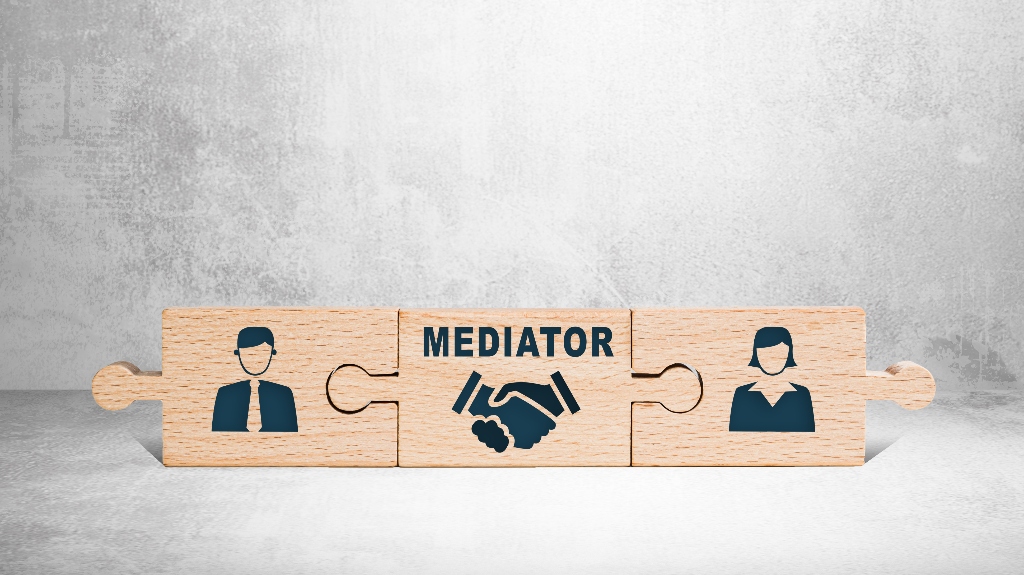
Divorce Mediation Attorney in DuPage County, Illinois
Divorce is never easy, but it does not have to be hostile, expensive, or dragged through the court system. For many couples in DuPage County, divorce mediation offers a more respectful and practical path forward. Mediation allows spouses to resolve their divorce privately, cooperatively, and at a significantly lower cost than traditional litigation.
At Kulerski & Cornelison, attorney Kari Cornelison helps DuPage County couples reach fair and workable divorce agreements through mediation. With more than twenty years of experience in Illinois family law, Kari focuses on helping clients move forward with clarity and cooperation rather than conflict. Her approach keeps the process efficient, protects what matters most, and reduces the emotional toll divorce often brings.
Need Help Now?
What Is Divorce Mediation?
Divorce mediation is a voluntary process in which both spouses work with a neutral mediator to resolve the issues involved in ending a marriage. Rather than placing decisions in the hands of a judge, mediation allows spouses to maintain control and shape outcomes that fit their family’s needs.
A divorce mediator does not represent either spouse, take sides, or provide legal advice. Instead, the mediator facilitates productive discussions, helps identify concerns, and guides negotiations on topics such as:
- Property and debt division
- Parenting time and decision-making
- Child support
- Spousal maintenance
When an agreement is reached, the terms are typically drafted into a Marital Settlement Agreement and submitted to the court for approval. Once approved, the agreement becomes legally binding.
How the Mediation Process Works in Illinois
While every mediation is different, most follow a similar structure designed to promote fairness and efficiency.
The mediation process typically includes:
- Both spouses agree to participate in good faith
- The mediator meets with each spouse to discuss goals and expectations
- Financial documents are exchanged so both parties understand assets, debts, and income
- Joint or separate mediation sessions are held to discuss proposals and options
- Once agreements are reached, legal documents are prepared for court filing
The mediator ensures both spouses have an equal opportunity to participate and that discussions remain focused on solutions rather than blame. When the judge approves the mediated agreements, the divorce is finalized without contested hearings.
Issues That Can Be Resolved Through Mediation
Divorce mediation is flexible and can address nearly every issue that must be resolved in an Illinois divorce.
Common topics include:
- Division of marital property, assets, and debts
- Parenting time schedules and parental decision-making
- Child support and child-related expenses
- Spousal maintenance
- Allocation of household bills and responsibilities
- Tax considerations and post-divorce financial planning
Because mediation is not limited by courtroom procedures, couples often reach agreements that are more creative and practical than those imposed by a judge. This flexibility is especially helpful for families with unique financial or parenting circumstances.
Why DuPage County Couples Choose Divorce Mediation
Many couples across DuPage County choose mediation because it is more efficient, cost-effective, and less stressful than litigation.
Key advantages include:
- Fewer attorney hours and lower legal costs
- No contested hearings or drawn-out discovery disputes
- Faster resolution compared to traditional divorce
- Complete confidentiality of mediation discussions
For parents, mediation also provides a stronger foundation for co-parenting. By working together to make decisions about children, parents develop communication and problem-solving skills that continue long after the divorce is finalized. Children benefit from seeing cooperation rather than prolonged conflict.
Mediation Compared to Traditional Divorce Litigation
Traditional divorce litigation often involves formal motions, discovery requests, and multiple court appearances. This process can take many months or longer and may increase hostility between spouses.
Mediation takes a different approach. Instead of preparing for trial, both parties focus on negotiation and resolution. Many mediated divorces are completed within a few weeks or months, depending on complexity and cooperation.
While litigation can deepen conflict, mediation encourages compromise and mutual understanding. Agreements reached through mediation are often easier to follow because both spouses had a role in creating them.
When Mediation May Not Be Appropriate
Mediation works best when both spouses are willing to be honest, transparent, and cooperative. It may not be suitable in situations involving:
- Hidden assets or financial dishonesty
- Refusal to negotiate in good faith
- Intimidation, coercion, or abuse
If mediation is not appropriate, Kari Cornelison can help explore other options such as cooperative divorce, collaborative divorce, or traditional representation. Her goal is always to identify the approach that best protects your interests while minimizing unnecessary conflict.
Why Work With Kari Cornelison
Kari Cornelison is a trusted Illinois family law attorney who has dedicated her career to helping clients resolve divorce matters efficiently and respectfully. From her Oak Brook office, she serves individuals and families throughout DuPage County, including Naperville, Wheaton, Downers Grove, Hinsdale, Clarendon Hills, and surrounding communities.
Her practice is built on a simple philosophy: divorce does not have to be a war. By using mediation and other settlement-focused approaches, she helps clients save time, reduce costs, and protect their emotional well-being. Clients value her ability to explain complex legal concepts clearly and guide discussions with calm professionalism.
With more than two decades of experience, Kari understands how DuPage County courts review mediated agreements and how to ensure settlements meet all legal requirements for approval.
Serving Clients Throughout DuPage County
Kulerski & Cornelison represents clients across DuPage County who want to resolve their divorce through mediation rather than litigation. Whether your goals involve property division, parenting arrangements, or financial support, Kari provides skilled guidance at every stage of the process.
Contact Kulerski & Cornelison
If you are considering divorce mediation in DuPage County, you deserve clear, honest guidance from an attorney who understands both the legal process and the human side of divorce.
Contact Kulerski & Cornelison today to schedule a confidential consultation. Kari Cornelison will explain how mediation works, what to expect, and how this approach can help you reach a fair and efficient resolution without the stress of going to court.
Mediation gives you control over your future. With the right guidance, you can move forward with confidence and cooperation instead of conflict.



